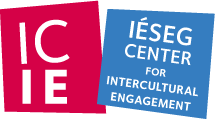How can individuals and organizations develop intercultural competence?
Along this axis, IÉSEG researchers explore the various means and methods of developing and exploiting competence to facilitate interactions between different parties who have different national/cultural backgrounds. Extant research has indicated that organizations operating in international markets need to invest further in their employees’ cognitive, affective and behavioral skills development to sensitize them to cross-cultural differences. This can increase their performance, minimize conflict and support their engagement with their diverse environment, by creating a harmonious work environment and better interactions with customers and other stakeholders.
 How does the globalization of markets affect consumers’ identities, dispositions and behaviors towards products and brands offered in these markets?
How does the globalization of markets affect consumers’ identities, dispositions and behaviors towards products and brands offered in these markets?
Along this second axis, ICIE researchers focus on consumers in international and multicultural contexts. As such, the center holds expertise in the studies of cross-cultural consumer segments, the relevance of country of origin cues, global branding research, and the development of measurement instruments to capture cross-cultural consumer groups for market segmentation purposes.
How do intercultural differences affect MNCs in their selection of business partners and their operations in foreign countries?
Along the third axis, ICIE researchers seek to understand the importance of international markets in this era of globalization, and the challenges faced by MNCs with regards to integration in domestic and foreign markets and the selection of key partners to forge profitable synergies. Our researchers have in the past examined some of these issues in the Arab and the emerging markets (China and Taiwan) context.
What is the effect of the cultural heritage of top management teams on economic decision making?
The fourth axis of ICIE’s research activities concerns the sources of heterogeneity of managers’ preferences for risk-taking. The objective is to explain the role of culture in shaping their financial decision-making. Culture is diffused informally across society as a whole, and shapes the preferences of individuals.

How do globalization forces influence organizational priorities, sensibilities and actions?
Finally, the fifth axis of ICIE’s research agenda is an amalgamation of the second and third axes, focusing mainly on the management’s perspective. Again, examining the role of globalization of markets is paramount, especially in the light of the organizations’ shifting priorities and the enormous possibilities to benefit from global market integration. Outsourcing is another key issue in this context, which comes with the challenges of adapting to new local markets.

